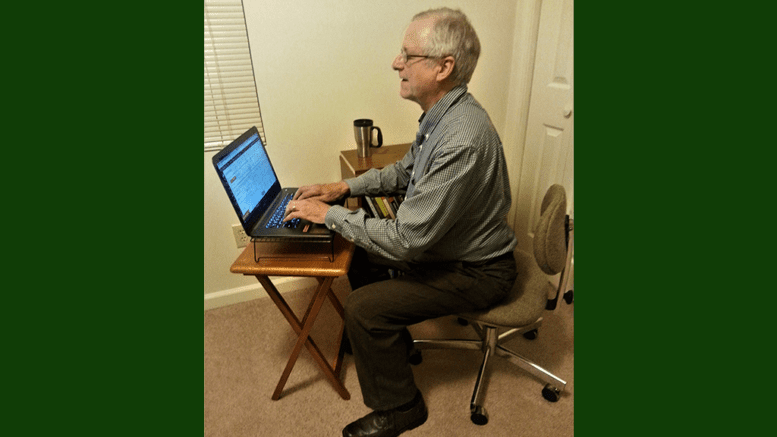Over the past few months some commenters, both under our articles and on social media, have described things we’ve run as “biased.” This escalated because a number of hot button issues converged at the same time (controversies over the opening of school and the effect of COVID-19, the furor over Critical Race Theory, and a couple of articles about a police shooting).
Bias is a common epithet to toss at things written that we don’t like.
So let me clear one thing up.
I am biased.
And you are too.
Every human being has biases, and journalists, who are typically charged with writing hundreds, sometimes thousands, of printed word per day each, are no exception.
Even decisions on who we interview, what subjects we tend to cover, and how many words we allow each viewpoint, exhibit biases, and it’s unavoidable, and not necessarily a bad thing.
Let’s take a hypothetical example.
Let’s say there’s a major civil rights bill coming to the legislature for consideration.
Who do I interview about it?
Certainly the bill sponsors are valid subjects. Also major opponents of the bill. I might also consult outside experts with insights on likely effects of the bill (legal experts, for example).
But do I have an obligation to interview the Grand Dragon of the Ku Klux Klan? The Grand Dragon certainly has an opinion on the issue.
Does it show bias that the KKK is scratched off my list before I even begin? Of course it does. And it’s a bias I have no intention of ending. There are people whose opinions do not add useful information to articles, and people whose opinions are actively harmful.
Most decisions on whose opinions to take seriously aren’t as clear as that. But it’s a decision editors and reporters make every day, and guidelines for making those decisions (biases, in other words) are inevitable.
But on the other hand …
But on the other hand biases can interfere with accuracy and fairness in reporting. If I go into a story with preconceptions, the chances of leaving out important information, or being absolutely wrong in the framing of a story, are high.
Journalists have this hammered into them from college onward. It doesn’t end bias (an impossible and even undesirable goal) but it gives them the tools to look over a story and say “Did I include every relevant fact? Is what I wrote accurate? How are my own biases affecting the way I framed this?”
Is it always necessary to include “both sides”?
Put bluntly, the answer to the question above is no. There is a tendency among some organizations to try to work up some sort of scale and always include “both sides.”
Again, let’s do a hypothetical question, but from a real-world example.
The “birther” movement started around the false rumor that President Barack Obama was not born in the U.S., and thus was ineligible to serve as president.
It was a nonsensical and racist myth to begin with.
So if I’m running a story on the birther movement, do I have to pretend that the value of a birther’s statement is as reasonable and likely as the actual facts?
No I do not.
Pardon my crude language here, but the most accurate way to report on bullshit is to point out that it’s bullshit.
So specifically, what are my biases?
So here are a list of my biases, which I have no intention of trying to cure myself of:
- Systemic racism is real, and worth studying: so both the 1619 Project and Critical Race Theory are important things to read and understand, not uncritically, but as important parts of the national conversation.
- Climate change is real, a dangerous threat to human existence, and has human causes. Climate change deniers are for the most part cranks or corporations benefiting economically from the causes of the looming catastrophe. The science is settled, and clear.
- COVID-19 is a dangerous pandemic, and the mainstream recommendations of large-scale masking, social distancing, and near-universal vaccinations are all needed to bring it under control.
- Voting rights should be extended, not constricted, and it should be easy and convenient to vote.
- Our election in 2020 was free, fair, had no more irregularities than in any other elections in the U.S. in the past (and was much more free and fair than any election in Georgia when I grew up in the 1950s) and Joseph Biden is the legitimately elected POTUS.
Those are just a few of my biases. I have more, but that’s enough to give you an idea of the range.
Next week I’ll write about a phenomenon called “Hostile Media Effect,” which is an important thing to understand when we’re outraged by something published in a news outlet.
